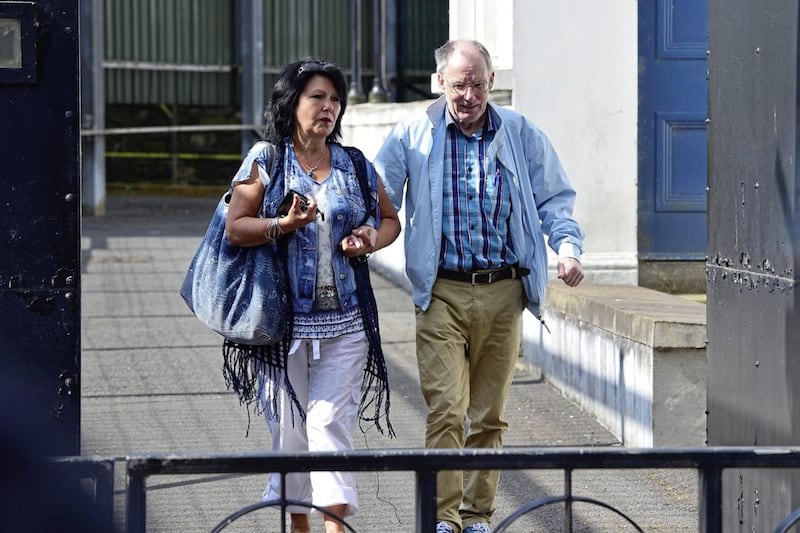A victim of childhood sex abuse, while a resident of the infamous Kincora boys home, has appealed for the implementation of the Historical Institutional Abuse Inquiry recommendations after being told he has just months to live
Clint Massey, who is suffering from lung and brain cancer, gave evidence to the HIA inquiry which delivered its findings just days after the collapse of the Stormont assembly.
In 1981 three senior staff at Kincora were jailed for abusing 11 boys in their care.
Mr Massey, (60) who was subjected to abuse while a resident in the east Belfast boys home, told the BBC's Nolan show that staff at the home treated the boys in their care as "meat".
"I was dealt a bad hand at first, but nobody deserves to be dealt two bad hands," he said.
Since the findings of the inquiry were delivered last January, by retired judge Sir Anthony Hart, seven of the victims who gave evidence have died.
Sir Anthony recommended a number of measures, including compensation paid partly by the Northern Ireland executive and partly by the religious orders who ran the children's homes.
Among those who have since died was Billy McConville, who had been abused after being taken into care when his mother Jean was abducted and murdered by the IRA.
Speaking to the Irish News just weeks before his death in July last year, he called on politicians to get around the table and help those like him who were in chronic need.
With many more victims elderly or in poor health, campaigners have called on the new Secretary of State Karen Bradley to push emergency legislation through Westminster to pay compensation in the absence of devolution.
Margaret McGuckin of the Savia support group said many victims struggle to make ends meet financially and worry about who will pay for their funeral if they die before the implementation of the recommendations.
"Because of the harsh childhoods and lives our survivors have lived they have a much lower life expectancy", she said.
"Many live in poverty, others are desperate for some kind of recognition of the hurt they endured, these continuing delays are cruel, heaping trauma on trauma", she added.








